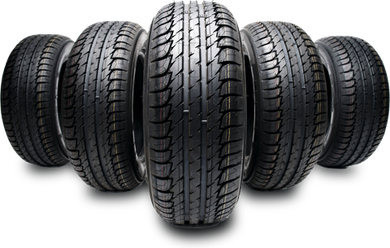Morris Tire and Alignment: Your Trusted Resource for Reliable Service
Morris Tire and Alignment: Your Trusted Resource for Reliable Service
Blog Article
Tire Solution: Comprehending Tire Stress Surveillance Systems
Understanding Tire Stress Monitoring Systems (TPMS) is a critical element of keeping optimum car performance and safety when driving. With advancements in vehicle modern technology, TPMS has become a basic function in modern-day automobiles, providing real-time info on tire stress degrees. Delving much deeper into the details of TPMS, one can reveal the numerous components that compose this system and the value of each in making certain accurate tracking. From direct to indirect TPMS systems, the landscape of tire pressure monitoring varies, each with its distinct set of advantages and factors to consider. Stay tuned to unwind the complexities of TPMS, from maintenance ideas to the undeniable benefits of keeping your tires properly inflated. tire shop morris.

Significance of TPMS
The relevance of Tire Stress Tracking Solutions (TPMS) hinges on their capacity to enhance lorry security and efficiency through real-time surveillance of tire pressure degrees. Keeping the right tire stress is critical for making sure optimal handling, stopping, and overall safety of a vehicle. TPMS offers drivers with prompt feedback on any underinflated or overinflated tires, enabling timely modifications to be made.
Components of TPMS
Making up different vital components, a Tire Stress Tracking System (TPMS) works as an innovative safety function in contemporary cars. The primary elements of a TPMS include sensors, a control module, and a warning sign. Sensors are usually located in the tire valve stem or affixed to the wheel assembly, where they measure tire pressure and transmit information to the control module. If it discovers substantially reduced pressure in any of the tires, the control module processes this info and causes a caution. The caution indicator, frequently a sign on the control panel, informs the motorist to examine the affected tire or tires. Some progressed TPMS versions likewise display the real tire pressure analyses for each and every tire, supplying vehicle drivers with real-time info to make certain optimal tire performance and security. By checking tire stress constantly, TPMS assists protect against crashes, lowers tire wear, and boosts gas performance, making it an important part for vehicle security and performance.
Sorts Of TPMS

On the various other hand, indirect TPMS depends on the car's wheel speed sensing units to check tire pressure. This system spots underinflation by contrasting the rotational speeds of the wheels. Indirect TPMS is much less expensive than straight TPMS, as it makes use of existing sensors within the automobile.
While straight TPMS offers much more precise analyses, indirect TPMS is easier in layout and normally requires less upkeep. Both systems have their advantages and constraints, and the selection in Click Here between them typically depends upon variables such as expense, lorry make, and individual choice. Understanding the differences in between these two kinds of TPMS can assist lorry proprietors make educated choices concerning tire upkeep and safety.
TPMS Upkeep Tips
Conduct routine checks on the tire stress degrees and contrast them with the TPMS analyses to ensure they are regular. During tire turning or substitute, make sure that the TPMS components are handled very carefully to protect against any prospective damage. If the TPMS alerting light brightens on the control panel, resolve the problem quickly by inspecting the tire stress and the general system for any kind of faults.
Benefits of Appropriate Tire Stress
Keeping appropriate tire stress, as emphasized in TPMS Maintenance Tips, is vital for gaining the countless benefits associated with optimum tire stress degrees. One of the main benefits of preserving the proper tire stress is enhanced gas performance. When tires are properly blown up, there is less rolling resistance, resulting in far better gas economy. In addition, proper tire pressure makes certain even tire wear, extending the life expectancy of the tires and promoting more secure driving conditions. With the ideal tire pressure, automobiles likewise have far better handling and traction, specifically in negative climate condition. This can improve total driving performance and security for the driver and travelers. Moreover, keeping ideal tire pressure can contribute to a smoother and more comfortable ride by minimizing vibrations and noise triggered by underinflated tires. To conclude, the benefits of proper tire stress surpass simply tire durability; they include improved fuel performance, enhanced safety and security, much better lorry efficiency, and overall driving comfort.
Final Thought
In conclusion, Continued recognizing tire stress monitoring systems (TPMS) is essential for keeping optimum tire stress and guaranteeing automobile security. By recognizing the significance of TPMS, recognizing with its components, understanding the various types available, adhering to correct upkeep tips, and realizing the benefits of maintaining correct tire pressure, vehicle drivers can improve their driving experience and lengthen the lifespan of their tires. Appropriate tire stress is vital to efficient and safe lorry operation.

Report this page